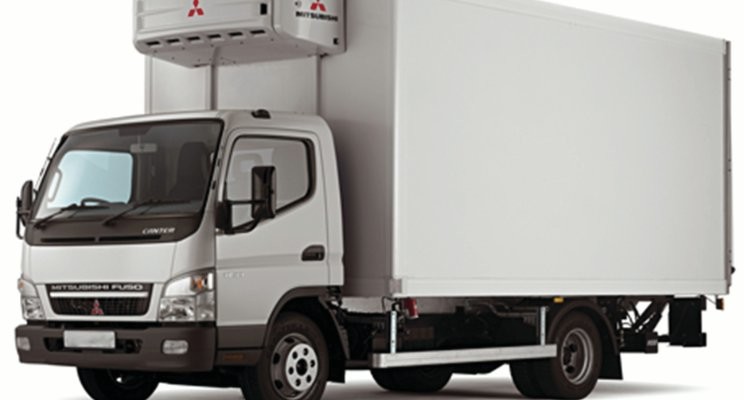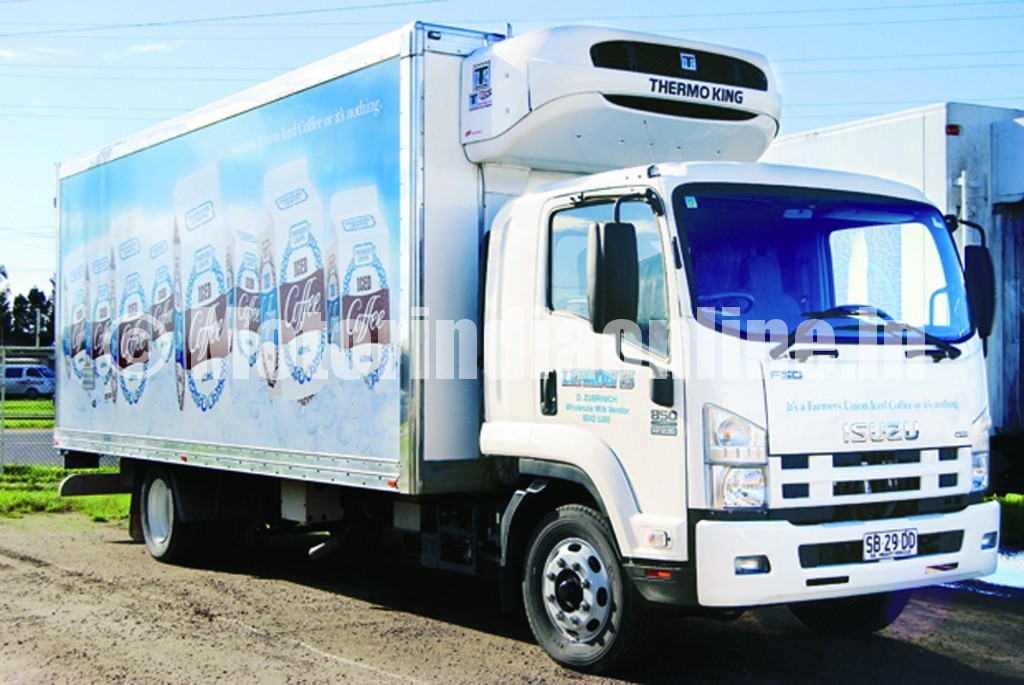Complete Guide to Leading Transport Refrigeration Companies
Complete Guide to Leading Transport Refrigeration Companies
Blog Article
Just How Cooled Trucks Operate to Make Sure Safe and Effective Shipment of Perishable Item
Cooled trucks play an important function in the supply chain, ensuring that subject to spoiling products are carried safely and effectively. Using advanced refrigeration modern technologies and durable insulation, these cars preserve precise temperature control, which is essential for maintaining the top quality of delicate items. Additionally, modern-day innovations in monitoring systems provide real-time understandings right into inner problems, additionally ensuring conformity with market standards. However, despite these innovations, difficulties stay in optimizing loading methods and navigating complex logistics. Checking out these ins and outs exposes not only the technology at work but also the wider effects for food security and quality control.
Review of Refrigerated Trucks
Cooled trucks, commonly described as reefer vehicles, play a critical role in the transportation of subject to spoiling products across various markets. These specific vehicles are designed to keep particular temperature arrays, ensuring that things such as fresh fruit and vegetables, dairy items, meat, and pharmaceuticals continue to be risk-free for usage and efficient use. The operation of chilled trucks is important in minimizing spoilage and extending the life span of temperature-sensitive items.
Reefer vehicles are outfitted with insulated cargo locations that are qualified of sustaining reduced temperatures, which can be adjusted according to the sort of items being carried. The lorries usually use a refrigeration device powered either by the automobile's engine or an independent power source, permitting consistent temperature level control during transportation.
In addition to temperature level maintenance, these vehicles are usually created with advanced tracking systems to track the inner environment, making certain compliance with health and wellness and safety guidelines. Chilled vehicles contribute considerably to the supply chain, allowing prompt distributions to consumers, retailers, and restaurants. Their critical role underscores the significance of reputable transport options in today's worldwide market, where freshness is vital.
Secret Refrigeration Technologies
Preserving ideal temperature control in refrigerated trucks depends on numerous crucial refrigeration innovations that improve effectiveness and reliability. One of one of the most usual systems is the vapor-compression refrigeration cycle, which uses a refrigerant to absorb heat from the vehicle's inside, lowering the temperature. This procedure entails a compressor, condenser, growth valve, and evaporator, operating in tandem to distribute the refrigerant and maintain a regular climate.
Another remarkable modern technology is the usage of eutectic plates, which keep and launch thermal power. These plates are full of a phase-change material that strengthens at a particular temperature level, giving a steady cooling source. This method not just improves power effectiveness but additionally decreases the demand for constant power supply throughout transit.
Additionally, advanced insulation products, such as polyurethane foam, significantly boost the thermal efficiency of chilled vehicles, lessening temperature level changes during unloading and filling. Some modern-day chilled vehicles likewise incorporate telematics systems, allowing for real-time surveillance of temperature level and efficiency, therefore ensuring conformity with safety and security requirements. Together, these technologies make certain the secure transport of perishable items while maximizing operational efficiency and minimizing power usage.
Temperature Control Devices
Reliable temperature control devices are essential in making certain the integrity of subject to spoiling goods during transportation. Refrigerated trucks make use of advanced innovations to keep consistent temperature level ranges, stopping perishing and guaranteeing item safety and security - transport refrigeration company.
Additionally, modern chilled vehicles are equipped with digital thermostats and programmable temperature level surveillance systems. These systems permit real-time monitoring of inner temperature levels, providing alerts if the temperature level differs the established array. This capacity is essential for compliance with health and wellness guidelines.
Insulation additionally plays a crucial duty in temperature level control. Top quality insulation materials lessen warm exchange, protecting the preferred interior problems. Air movement monitoring within the freight location is crafted to make sure consistent temperature level circulation, stopping hotspots that can endanger item honesty.
Ideal Practices for Loading

First, it is necessary to pre-cool the vehicle prior to loading. This practice permits the temperature control system to support, producing an excellent setting for subject to spoiling items. Next, products must be loaded in a manner that promotes air flow. Prevent overwhelming and obstructing vents, as this can lead to temperature fluctuations and hotspots.
Making use of pallets or shelving can help in organizing items, guaranteeing that much heavier products are put near the bottom to stop crushing lighter items. Furthermore, it is essential to set apart different sorts of products, specifically those with varying temperature level demands, to avoid cross-contamination and perishing.
Finally, safeguarding the tons with bands or nets will protect against motion throughout transit, therefore decreasing the threat of damage and keeping the stability of temperature-sensitive items. By adhering to these ideal practices, drivers can ensure secure and efficient shipment of subject to spoiling goods while maximizing the efficiency of their chilled trucks.
Obstacles and Solutions in Transport
Transporting products in chilled trucks provides numerous difficulties that can influence the integrity of temperature-sensitive items. One significant issue is temperature variations, which can occur because of tools malfunction or incorrect filling practices. These changes can cause spoilage, jeopardizing the top quality of perishable goods. Furthermore, roadway problems and delays can even more worsen temperature control concerns, especially during prolonged transportation times.
Advanced telemetry can provide real-time temperature level data, informing drivers to any kind of anomalies. Training employees on finest loading and unloading methods can minimize the threat of temperature inconsistencies.
Another trick service entails route optimization. Making use of GPS and web traffic management innovations can aid chauffeurs pick the most effective courses, decreasing transportation times and minimizing direct exposure to damaging conditions. Working together with dependable logistics companions that prioritize chilly chain honesty is also vital for making certain that products stay within called for temperature level varieties.

Conclusion
To conclude, refrigerated vehicles play an important duty in the risk-free and reliable transportation of subject to spoiling goods. Using advanced refrigeration innovations and effective temperature control mechanisms makes sure that items remain within called for temperature varieties. Complying with best techniques in loading and path optimization further enhances shipment performance. Dealing with difficulties via innovative services is crucial for maintaining compliance with transport refrigeration companies health and wellness laws, ultimately securing the honesty of sensitive products throughout the supply chain.

Report this page